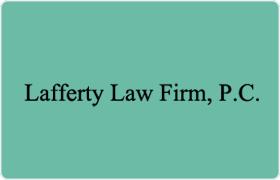 Robertson County, TN Reorganization Lawyers
Robertson County, TN Reorganization Lawyers
Sponsored Law Firm
-
 x
x

Click For More Info:
-
Lafferty Law Firm, P.C.
1321 Murfreesboro Pike Suite 521 Nashville, TN 37217» view mapBankruptcy & Debt Over 30 Years Of Experience
Susan S. Lafferty is a CPA and Attorney who enjoys helping people with financial problems. She is located in Nashville, TN where she has lived for over 30 years.
800-936-9071
Not enough matches for Robertson Reorganization lawyer.
Below are all Robertson lawyers.
Lawyers
1-10 of 14 matches
Social Security -- Disability, Wills & Probate, Family Law, Products Liability, Estate Planning
Insurance, Trusts, Wills & Probate, Federal Claims Court, Intellectual Property
Estate, Divorce & Family Law, Business Organization, Business



 Susan Lafferty Nashville, TN
Susan Lafferty Nashville, TN Practice AreasExpertise
Practice AreasExpertise